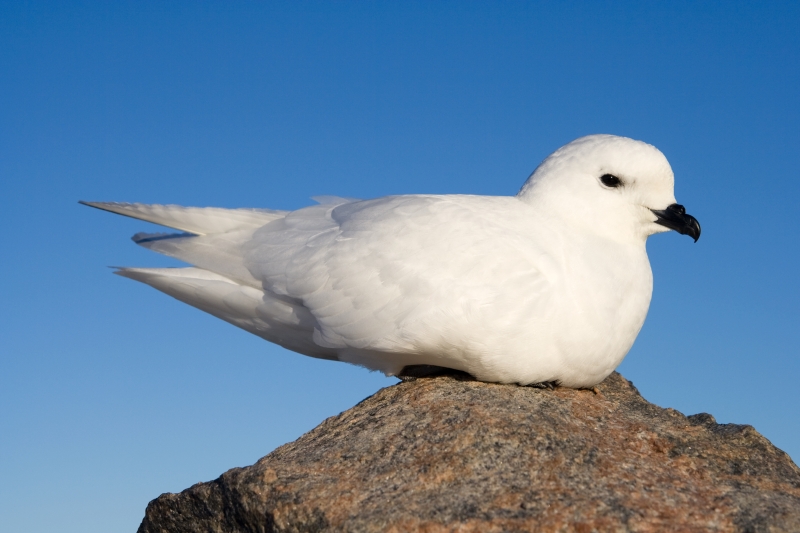Difference between revisions of "Template:Westarctica.wiki:Today's featured article"
Jump to navigation
Jump to search
Westarctica (talk | contribs) |
Westarctica (talk | contribs) |
||
| Line 1: | Line 1: | ||
[[File: | [[File:Snow Petrel-1.jpg|thumb|300px|left]] | ||
The '''[[ | The '''[[snow petrel]]''' is one of only three birds that breed exclusively in [[Antarctica]] and has been seen at the geographic [[South Pole]]. It has the most southerly breeding distribution of any bird. | ||
Snow petrels feed mainly on fish, some cephalopods, mollusks, and [[krill]], as well as carrion. During the winter, they disperse to the [[pack ice]], [[ice]] floes, and the open sea. Flocks are characteristically seen sitting on [[iceberg]]s. Only very rarely are they observed north of the pack ice. | |||
With an occurrence range of 35,900,000 km2 (13,861,067 sq mi), and an estimated population of 4 million adult birds, the IUCN has classified this bird as least concern for conservation efforts. | |||
'''([[ | '''([[Snow petrel|Full Article...]])''' | ||
Revision as of 19:38, 6 October 2018
The snow petrel is one of only three birds that breed exclusively in Antarctica and has been seen at the geographic South Pole. It has the most southerly breeding distribution of any bird.
Snow petrels feed mainly on fish, some cephalopods, mollusks, and krill, as well as carrion. During the winter, they disperse to the pack ice, ice floes, and the open sea. Flocks are characteristically seen sitting on icebergs. Only very rarely are they observed north of the pack ice.
With an occurrence range of 35,900,000 km2 (13,861,067 sq mi), and an estimated population of 4 million adult birds, the IUCN has classified this bird as least concern for conservation efforts.
